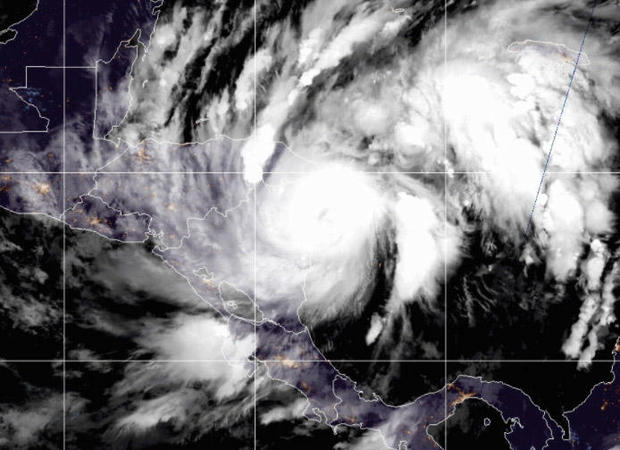U.N. World Food Programme Mobilizes Resources for Hurricane Iota Landfall

WASHINGTON, DC (November 16, 2020) – The United Nations World Food Programme (WFP), in coordination with the government of Nicaragua, is preparing for a coordinated response to Hurricane Iota, which is forecast to hit Nicaragua as a Category 5 hurricane tonight, November 16. This new storm follows closely on the heels of Hurricane Eta, which affected millions of people on Nicaragua’s northeast coast, before continuing its destructive path through Central America and parts of the Caribbean. In Nicaragua, some 80,000 families are at risk, including in areas that were flooded by river overflow from Hurricane Eta.
A deadly, record-setting 2020 hurricane season in the Atlantic, coupled with the COVID-19 pandemic, has left a trail of devastation across Central American and the Caribbean, deepening hunger in communities already hard hit by years of prolonged drought and economic instability.
“The arrival of this new storm, when the population of the North Caribbean is just beginning to rise from the blow of Hurricane Eta, will have a strong impact. We are again in preparation as we continue to provide aid for families already affected. All the investment that can be made before the arrival of an event of this type is very valuable because it can save lives and provide a more efficient and faster response,” said Giorgia Testolin, U.N. World Food Programme’s Representative in Nicaragua.
The U.N. World Food Programme is reinforcing the technical teams that had been deployed to Nicaragua in anticipation of Hurricane Eta, in preparation for Iota. They are working to strengthen logistics, telecommunications and food security capacities in the three previously hardest hit municipalities, and where it is estimated that this new storm will cause the greatest impact.
The U.N. World Food Programme has shipped 275 metric tons of rice, beans and vegetable oil to the North Caribbean coast. Of these, 91 metric tons have been distributed to the population. Having food reserves in places where the hurricane is expected to hit is vital to the care of affected populations.
In addition, the United Nations Humanitarian Response Depot (UNHRD) in Panama has prepositioned non-food items—mobile storage units, generators, prefab offices, health kits, tents and more—that can be airlifted within 72 hours of a disaster in the region.
The U.N. World Food Programme also supports response efforts by providing drinking water and containers for storage, since many water sources have been affected by the floods. It has also provided fuel and motor oil for local authorities to mobilize boats to affected communities, as well as bio-protection equipment, such as surgical masks and alcohol for shelters. These items complement food packages and other resources provided by the Nicaraguan government.
# # #
The United Nations World Food Programme is the 2020 Nobel Peace Prize Laureate. We are the world’s largest humanitarian organization, saving lives in emergencies and using food assistance to build a pathway to peace, stability and prosperity for people recovering from conflict, disasters and the impact of climate change. | Follow us on Twitter @WFPUSA @wfp_media and @unmigration




